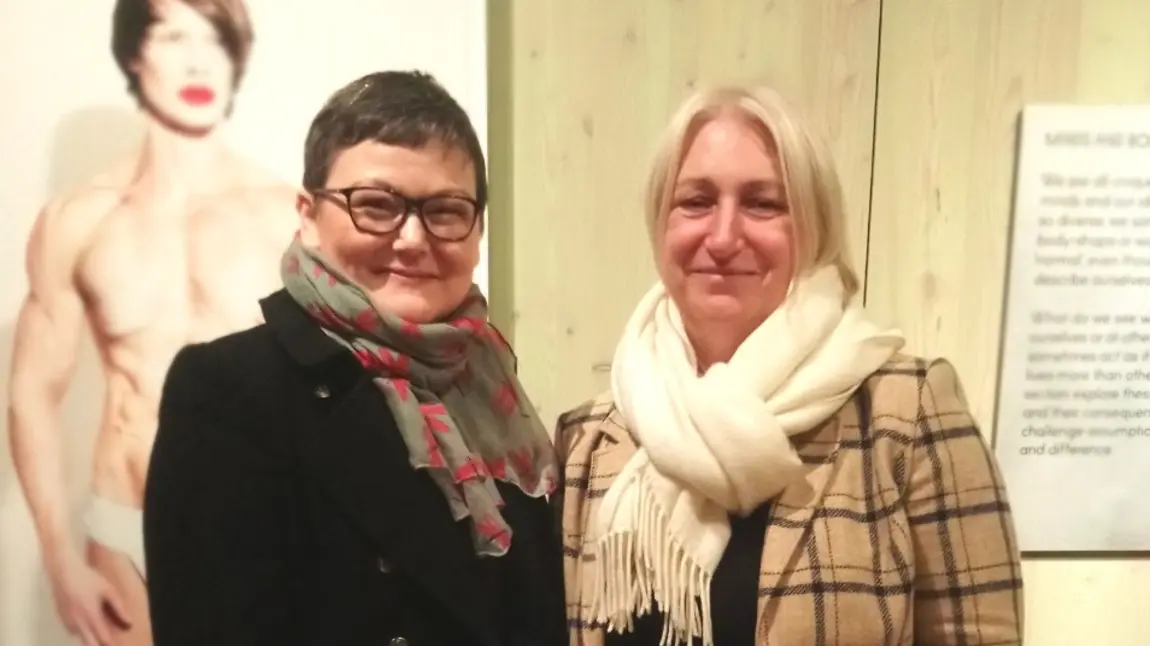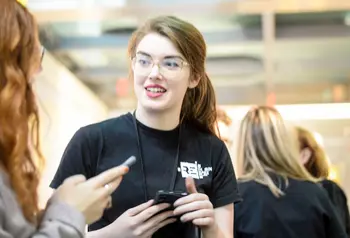Inclusion isn't a 'challenge', it's a chance for exciting possibilities

Page last updated: 12 July 2022
What challenges do disabled leaders in the heritage world face at the moment?
Zoe:
These so-called "challenges" can be radically improved and removed by encouraging the heritage world to employ and commission disabled experts.
Funding is often cited as another barrier. It is used to continue to exclude disabled people as audiences or employees or decision makers but in practice this is just an excuse.
For example, if all your staff use sign language then communication is improved and you don't need to buy in interpreters. We tend to place the emphasis on disabled people but it shouldn't be like this.
Becki:
One particular challenge for me is how generally the heritage world can be hyper focused on particular topics and is in a continual loop of discussion and not enough action. This means there is a consistent need to keep highlighting the importance of working as inclusively as possible.
The Disability Collaborative Network is now part of EMBED, which is a way of sharing things we have learned from other sectors and industries. By making positive, meaningful, inclusive change, we can create a better, more proactive sector.
What is your advice for any disability-led group or organisation interested in applying for our funding?
Zoe:
You need to be passionate about your project. But you don’t have to change. Disabled leaders have unique skills including tenacity, strength, determination and spend all their lives negotiating barriers.
My advice would be to ensure you use the social model of disability to highlight that disabled people are not "the problem". Inaccessible environments, buildings, collections, archives and recruitment and employment procedures exclude us. If you understand where the problem lies you can remove it and make informed progress.

Becki:
Firstly, it’s important that groups' work and experience is recognised at the pre-planning stage, during the project and at the end. Also, that the project itself is part of a wider strategy for all the organisations involved.
Innovative creative thinking and processes should be recognised and need to be shared as far as possible.
As disabled women leaders, can you share any knowledge or advice you wish you'd had 10 years ago?
Zoe:
Yes, I wish I'd had a mentor, I think a disabled woman in a senior position working in the heritage sector would have been invaluable as a mentor.
Change happens due to who is in charge and what experience they may have. This is why it is so important that inclusion is everyone's main priority.
Becki
The crucial thing I've learned is that my unique skills - because I have lived experience as a disabled woman and have observed discrimination in action - are a very valuable asset. I have found that even large institutions feel that you should offer your experience and expertise for free in focus groups or as an advisor. It's a constant battle to be paid and valued.
Becki:
I wish I had known that who engages with heritage and who doesn't is often in the hands of the heritage sites themselves. For example, there are children who want to visit museums but can’t due to lack of Changing Places toilets.
Change happens due to who is in charge and what experience they may have. This is why it is so important that inclusion is everyone's main priority.
Find out more
Find out more about:
- UK Disability History Month
- Disability Collaborative Network
- Zoe Partington
- DisOrdinary Architecture Project
- Sensing Culture
At The National Lottery Heritage Fund we are proud to fund all sorts of inspiring projects led by disabled people. Find out how you can get funding for your idea.



